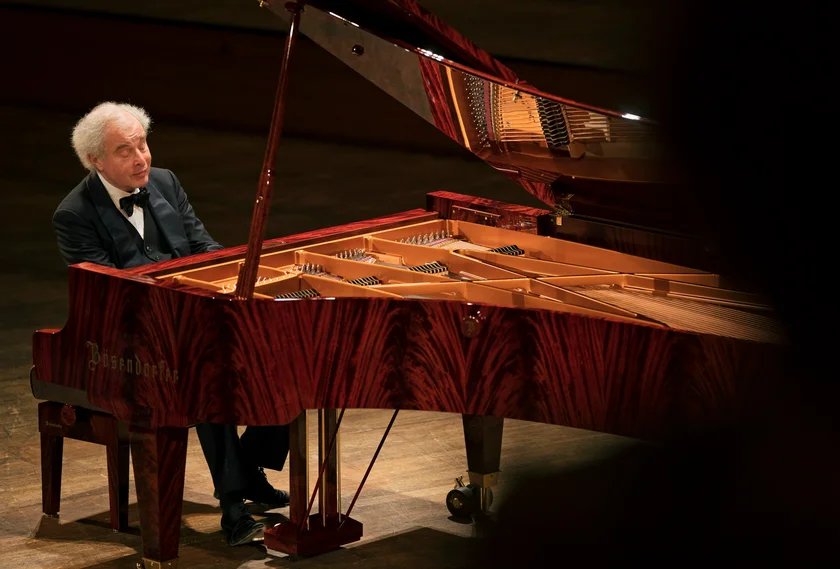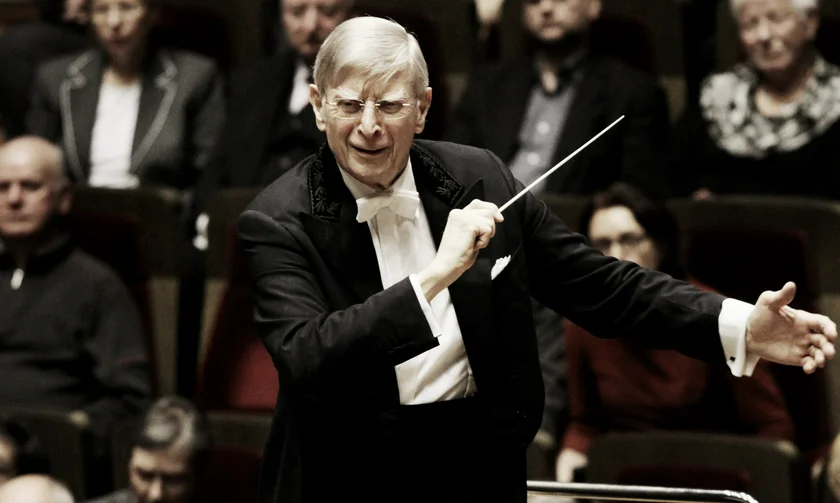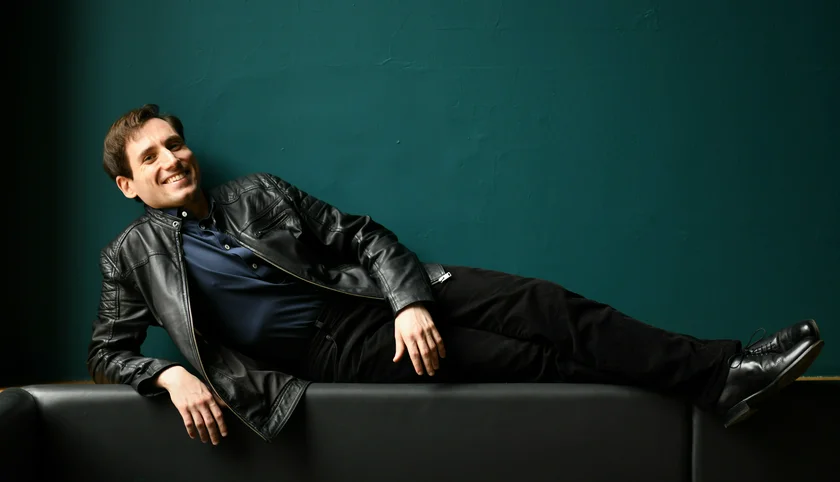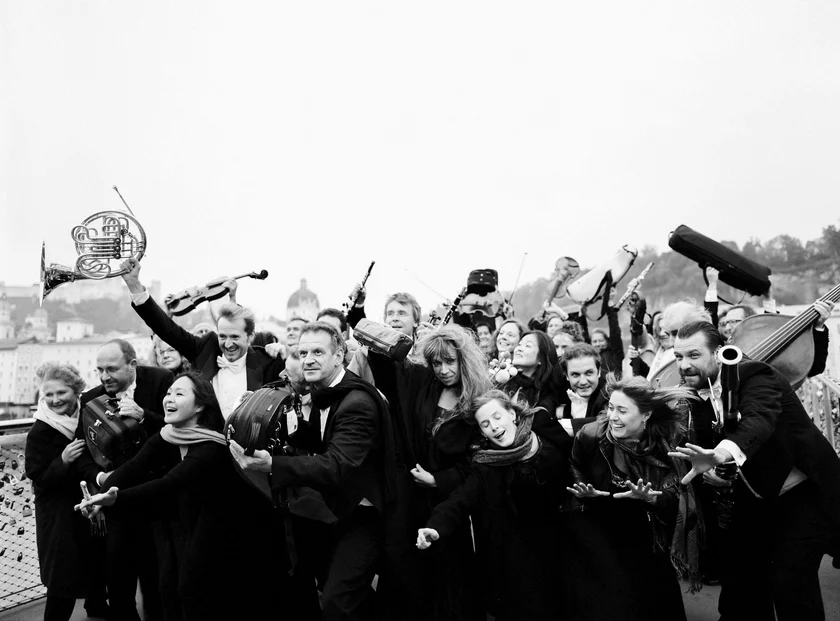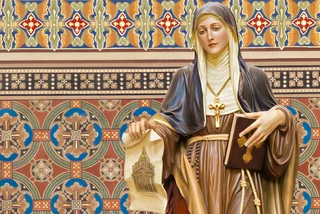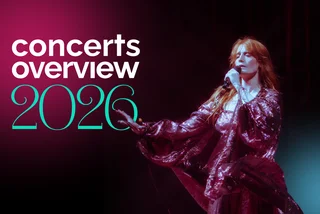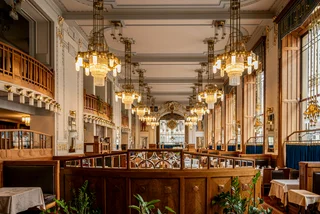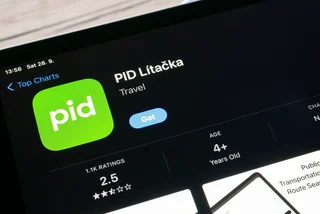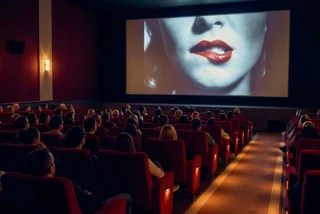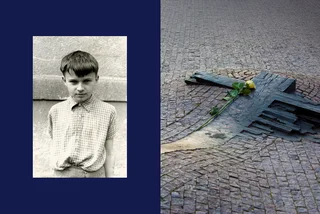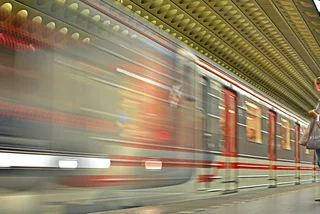The 14th edition of the Dvořák Prague (Dvořákova Praha) International Music Festival will be special for several reasons. The first is that it is taking place in front of a live audience, after the turbulent times that festivals have been facing. Another reason is that it will mark two significant anniversaries.
The festival runs Sept. 6–24, with most events at the Rudolfinum, but there are also some slated for St. Vitus’ Cathedral and St. Agnes Convent, as well as an out-of-town prelude.
“This year we commemorate the 180th birthday of Dvořák, and to celebrate it, the festival has a more festive feature: two residential orchestras. Traditionally, the Czech Philharmonic is the residential orchestra, but this year it is also joined by the Bamberger Symphoniker, led by Jakub Hrůša,” festival director Jan Simon said.
The Czech Philharmonic plays Sept. 10 led by Tomáš Netopil, Sept. 16 led by Petr Altrichter, and at the closing concert on Sept. 24 with Sir András Schiff. The Bamberger Symphoniker has concerts on Sept. 19 and 21.
“The concert on Sept. 16 marks another anniversary – 1,100 years since the death of Saint Ludmila, who played a key role in the conversion of the Přemyslid dynasty to Christianity,” Simon said. The composer dedicated one of his most highly regarded works to St. Lumila, an oratorio with a text by poet Jaroslav Vrchlický.
“Dvořák’s monumental oratorio tells this story and is a celebration of the Czech nation. The Czech Philharmonic Orchestra is joined by Prague Philharmonic Choir and by four soloists. Unlike most of the other concerts, which are held at the Rudolfinum, this one takes place at St. Vitus’s Cathedral, a symbol of Czech statehood,” he added.
Simon explained the enduring appeal of Dvořák’s work. “His music sounds very natural, it is easily accessible for listeners but at the same time it is very deep, emotional in the most valuable way (not sentimental), it may sound simple, but it is never too simple because of his very sophisticated way of composing,” Simon said.
The composer initially had to struggle for recognition, but eventually found international success. “Towards the end of his life Dvořák was frequently described as the world’s greatest living composer,” he added.
Dvořák’s music is unique in how it combines the national and folklore elements of Czech music and classical music. “He was also inspired by the folk music of the countries he visited, such as Russian dumka – he was in Russia twice, he was a good friend of Tchaikovsky,” Simon said.
This brings us to the start of the festival on Sept. 6. “In 1892 Dvořák traveled with his family to the United States to teach at the New York Conservatory – he was inspired by African-American music and Native American music, which can be heard in his most famous symphony ‘From the New World,’ a piece that opens this year’s and also every year’s festival together with Dvořák’s Cello concerto. A nice tradition,” he added.
The opening concert will be played by Filarmonica della Scala, conducted by Andrés Orozco-Estrada. The featured soloist is German cellist Daniel Müller-Schott, who plays a cello made in 1727 by the workshop of Matteo Goffriller in Venice.
The festival has another tradition. Right before the first concert, there is a prelude. This year it is on Sept. 4 at a 19th century chateau in the town of Maleč.
“The concept every year is to follow the trail of Dvořák, visit places that are somehow connected with his life, with his works, with his stays or friends. It can be Prague, it can be his summer house in Vysoká where Dvořák often composed. This year it is the Maleč Chateau associated with the life of Marie Červinková-Riegerová, the librettist of his operas ‘Jakobín’ and ‘Dmitry,’” Simon said.
Selections of those operas will be performed during the prelude. Červinková-Reigrová was the daughter of František Ladislav Rieger, an important figure in the Czech awakening movement.
The main part of the festival itself has some more attractions. “The ‘biggest stars’ are the Vienna Philharmonic Orchestra (Wiener Philharmoniker), who perform on Sept. 12 and 13. They are a benchmark ensemble in terms of their interpretation of Bruckner and Brahms, both on the program, and they are coming to Prague with their favorite and beloved conductor Herbert Blomstedt, who is 94!” Simon said.
“We are also looking forward to Sir András Schiff; the Chamber series with Israeli pianist Boris Giltburg as its curator; American Pianist Kit Armstrong making his [Czech] debut appearance on Sept. 15; or François Leleux, the oboe master, playing works by Mozart and Dvořák. Leleux will also conduct Camerata Salzburg, one of the world’s leading chamber orchestras,” Simon said.
Sir András Schiff is this year’s artist-in-residence. “He makes the piano sing, critics often say,” Simon added.
People will have three chances to see Sir András. There is a solo recital with works by Robert Schumann and Sir András' favorite Czech composer Leoš Janáček. "He will also be with his old-time friends of the Panocha Quartet to play Dvořák’s piano quintets, the second of which is incredibly famous and popular,” Simon said. As already mentioned, Sir András closes the festival, when he will conduct the Czech Philharmonic and also be the soloist in Mozart’s Piano concerto No. 20.
Another established star making an appearance is Joshua Bell, who has won several Grammys. He will play Dvořák’s Violin concerto. “When interpreted by such a good soloist as Mr. Bell, for example, it is always a fantastic experience. And thanks to performers like him, this concerto became a part of the standard violin concerto repertoire worldwide,” Simon said. Bell is also the music director of the London-based orchestra Academy of St Martin in the Fields.
Even though the festival is dedicated to Dvořák, there is music from other composers. There is some logic to it, though. For Brahms or Tchaikovsky, there is a personal connection with Dvořák, as these men were friends. “If we talk about world-renowned composers, the answer is very simple. Everything works in causality. Without predecessors, there would be no contemporaries or followers. We invite people to come and listen to good music; its history is regulated by this way of causality,” Simon said.
“And we always try to remember the personalities who had an influence on musical and cultural progress. Last year we marked 250 years of Beethoven, this year we mark 180 years of Dvořák, 230 years of the death of Mozart, 1,100 years of St Ludmila, 50 years since the death of Igor Stravinsky, whose ‘Rite of Spring’ is on Sept. 15,” he added.
While most of the events are high brow – with appropriate concert attire required — there is an informal Family Day on Sept. 11, though the program is in Czech. “The Family Day intends to bring fun activities, and easily accessible forms of classical music to children and their parents. … Among other items on the program there is a 60-minute ‘flight’ through the history of music,” Simon said.
Since the festival takes place in September, tickets can be sold for the full 1,100 seats of the Rudolfinum. As with all events, Covid protocols must be met. Visitors will need to present either a vaccination certificate showing two weeks after the final dose, an antigen or PCR test within the specified validity windows, or proof of recovery from Covid within the past 180 days. A mobile testing site will be available in front of the Rudolfinum 90 minutes ahead of time.
This article was written in association with Dvořákova Praha. To read more about our partner content policies see here.












 Reading time: 6 minutes
Reading time: 6 minutes 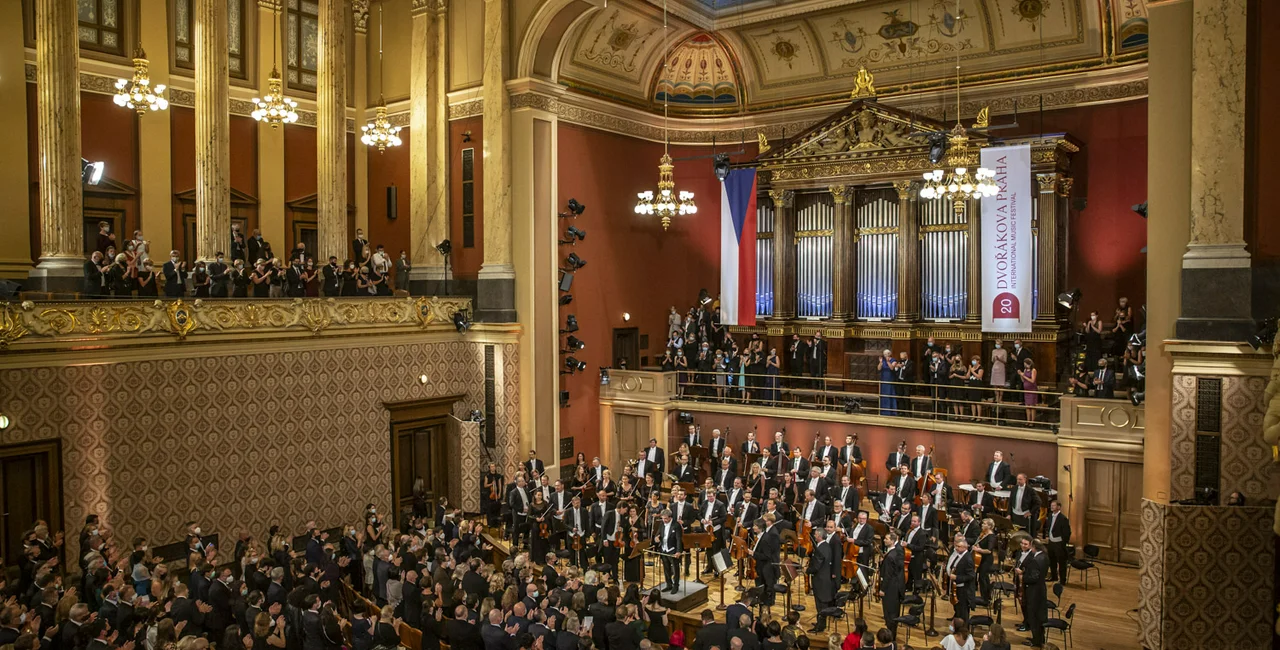

![Dvořákova Praha Dvorak Dvořák Joshua Bell - photo by Benjamin Ealovega [266]](/images/publishing/articles/2021/09/840/dvorakova-praha-dvorak-dvorak-joshua-bell-photo-by-benjamin-ealovega-aphvq.webp?1679391910)
